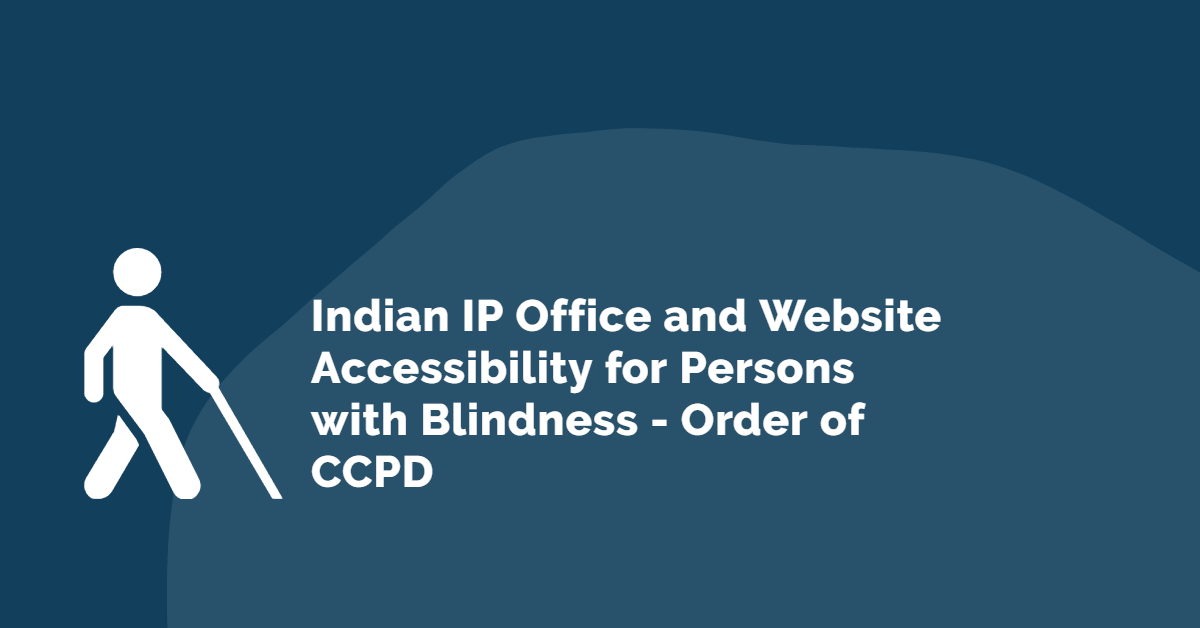The Rights of Persons with Disabilities Act, 2016 (“RPwD Act”) was enacted with the objective of giving effect to the provisions of the UN Convention of Persons with Disabilities to which India is a member state. The RPwD Act requires Government and private establishments to provide information, communications and documents in formats that are accessible to persons with disabilities. The Act also mandates establishments to provide reasonable accommodations, and states that not providing such accommodations amounts to discrimination. The Rights of Persons with Disabilities Rules, 2017 (“RPwD Rules”) state that websites, documents and communications must comply with website standards of Department of Administrative Reforms and Public Grievances. The rules also provide that documents must be made available in EPUB or OCR based formats. In different orders in Rajive Raturi Vs. Union of India, the Supreme Court has emphasized the need to make websites and documents accessible to persons with blindness.
In 2018, Dr. Kalyan C. Kankanala, a person with blindness, filed a complaint before the Chief Commissioner for Persons with Disabilities (CCPD) claiming that the website of the Indian IP Office (IPO) is not fully accessible for persons with disabilities. He submitted in his complaint that patent and trademark search facilities, online filing system, and documents on the IPO’s portal cannot be accessed by persons with blindness, who use screen readers. He pointed out that as patent and trademark attorneys are required by the Patent Rules to file online, the accessibility hurdles are detrimental to full and equal participation of attorneys with blindness in the patent and trademark process. In his complaint, Dr. Kalyan prayed for recommendations and orders to make the website, documents and filing facilities access friendly.
After several exchanges between Dr. Kalyan and the Office of the Controller General of Patents, Designs and Trademarks (CGPDTM) under the aegis of the CCPD, the Office of CGPDTM has taken steps to make portions of the website accessible. The initiative was led by Dr. Suman Shrey Singh, Deputy Controller, who worked with the National Informatics Centre (NIC) to improve accessibility of the IPO. The Office of CGPDTM also appointed a disability officer, who can be contacted by persons with disabilities for reasonable accommodations, facilities and accessible documents, among others. Though some documents and portions of the filing system are still inaccessible, the CGPDTM’s office has agreed to make those accessible at the earliest possible.
Satisfied with the IPO’s actions and positive response, Dr. Kalyan submitted to the CCPD that the case might be disposed by taking the responses of CGPDTM on record. The CCPD has accordingly disposed the case on 10th September, 2020. Though the CCPD has only recommendatory powers under the RPwD Act, this case elucidates that much can be accomplished within the framework of the Act if Government and private establishments are willing to comply with the law before a case goes to Court for enforcement. Dr. Kalyan’s experience also shows that much can be accomplished through organized efforts of CCPD and SCPDs in handling complaints.
References
- Sections 3, 12, 40 and 75 of RPwD Act, 2016.
- Rule 15 of RPwD Rules, 2017.
- RAJIVE RATURI Vs. UNION OF INDIA AND Others, WRIT PETITION (CIVIL) NO. 243 OF 2005 and WRIT PETITION (CIVIL) NO. 228 OF 2006.
- Dr. Kalyan C. Kankanala Vs. The Office of CGPDTM, Case Number No. 10426/1101/2018, Decided by CCPD on 10th September 2020.



